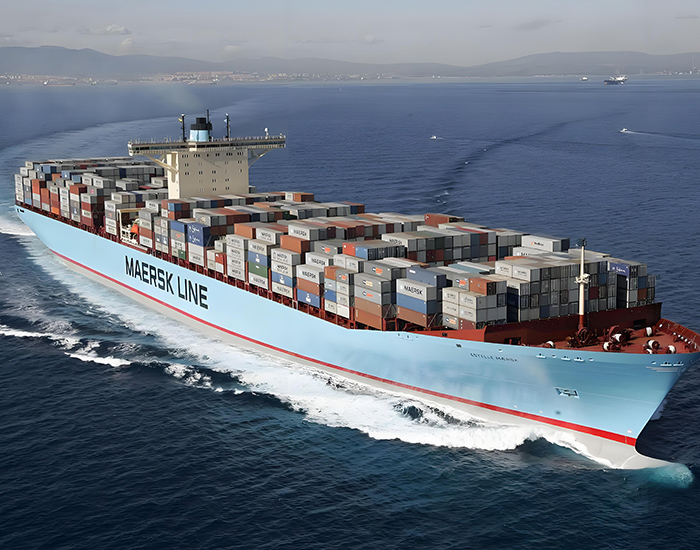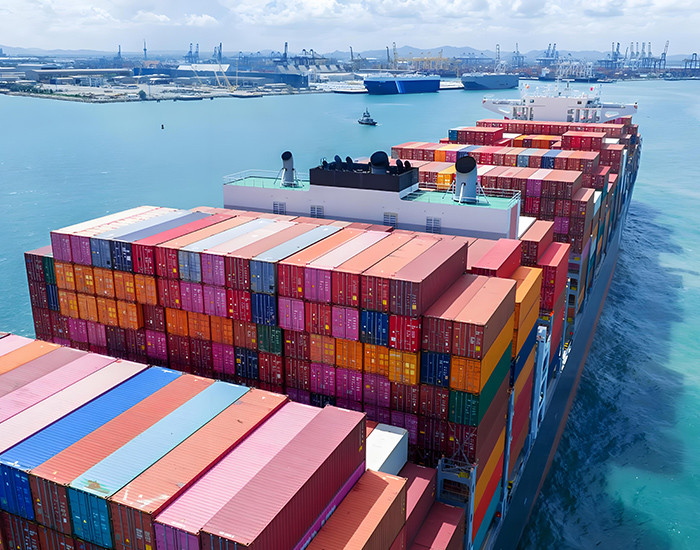

Cancel
Clear the records
Historical record
Clear the records
Historical record
The international logistics industry is ushering in a new era of transformation: Digital transformation and green trends shaping the future.
With the increasing prosperity of global trade and the rapid development of e-commerce, the international logistics industry is undergoing unprecedented transformation. Digital transformation and environmental sustainability trends have become two key drivers propelling the industry toward a more efficient, green, and intelligent future.
I. Digital Transformation Accelerates Industry Upgrading
In recent years, the international logistics industry has made significant progress in digital transformation. By adopting advanced technologies such as big data, artificial intelligence, and the Internet of Things, logistics companies can achieve real-time monitoring and intelligent scheduling of the entire cargo transportation process, improving transportation efficiency and service quality. Meanwhile, digital transformation has also driven intelligent upgrading in the logistics sector, with new models like smart warehousing and unmanned delivery continuously emerging, injecting new vitality into the industry.
In the field of international logistics, some companies have already begun actively deploying digital transformation. For example, a well-known logistics company introduced an advanced logistics management system to achieve intelligent scheduling and optimization of its global logistics network, enhancing transportation efficiency and customer satisfaction. Additionally, the company is actively exploring new models such as unmanned delivery to provide customers with more convenient and efficient logistics services.
II. Environmental Sustainability Trends Drive Green Development
Against the backdrop of global warming and increasingly severe environmental issues, environmental sustainability has become a crucial direction for the development of the international logistics industry. More and more logistics companies are focusing on environmental protection, actively adopting various measures to reduce carbon emissions and environmental pollution.
On one hand, logistics companies are reducing energy consumption and carbon emissions by optimizing transportation routes and improving efficiency. For instance, some logistics firms use advanced logistics management systems to enable real-time monitoring and intelligent scheduling of transport vehicles, effectively reducing empty runs and traffic congestion, thereby lowering energy consumption and carbon emissions.
On the other hand, logistics companies are actively exploring green transportation methods. Examples include using electric vehicles, hydrogen-powered vehicles, and other new energy vehicles for transport to minimize environmental pollution. At the same time, some logistics companies are participating in market mechanisms such as carbon emission trading to promote greener and low-carbon development in the industry.
III. Future Outlook: A More Efficient, Green, and Intelligent International Logistics Industry
Looking ahead, the international logistics industry will continue to grow rapidly. Digital transformation and environmental sustainability trends will remain pivotal in guiding the industry's development toward greater efficiency, sustainability, and intelligence.
On one hand, with continuous technological advancements and the expansion of application scenarios, digital transformation will play an even more critical role in international logistics. Companies will further strengthen digital infrastructure, enhance information management, and achieve more intelligent and refined operations and services.
On the other hand, environmental sustainability trends will continue to push the industry toward greener and low-carbon development. Logistics firms will actively explore eco-friendly transportation methods, reduce energy consumption and environmental pollution, and contribute to addressing global climate change and environmental challenges.
In summary, the international logistics industry is experiencing unprecedented transformation and development opportunities. Digital transformation and environmental sustainability trends will serve as two key drivers, leading the industry toward a more efficient, green, and intelligent future.




 The built-in sharing function of the browser is also very useful~
The built-in sharing function of the browser is also very useful~







